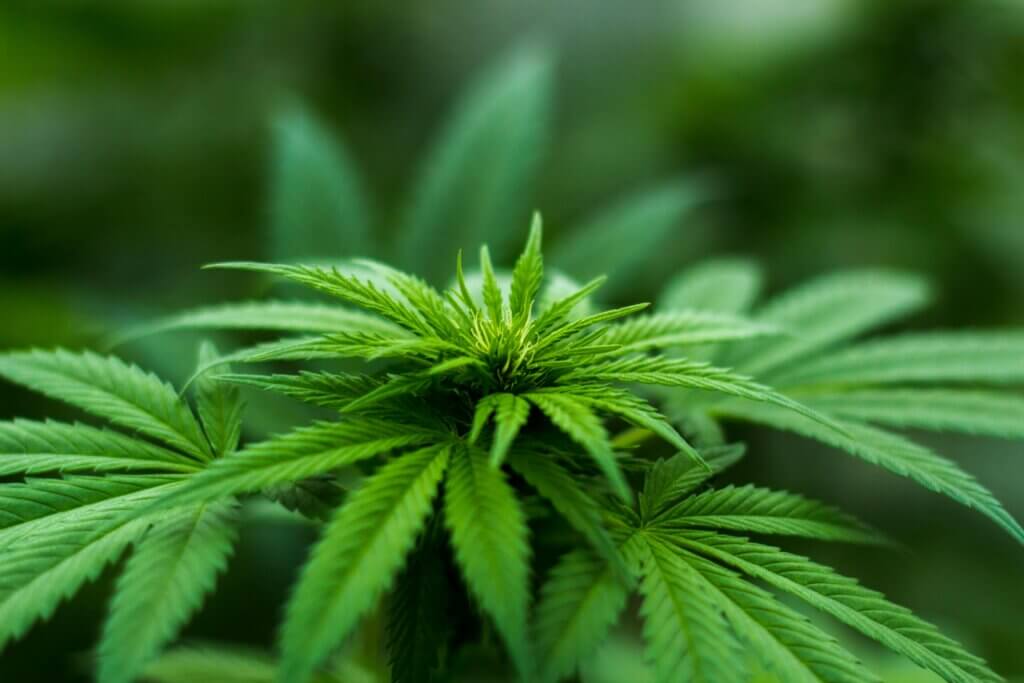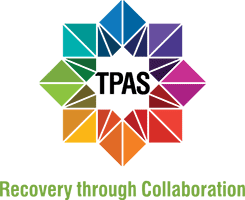An Interview with CooperRiis at Asheville’s Integrative Psychiatrist, Dr. Amy Zimmerman facilitated by professional writer Laura Eshelman, MSW. Image credit to Michael Fischer from pexels.com.
In 2024, marijuana is now legal in two-thirds of the United States, either for medicinal or recreational use. While this has been a positive change for many, the increased prevalence and potency of cannabis products can create or exacerbate mental health challenges for others. I conducted the following interview with Dr. Amy Zimmerman of CooperRiis Asheville to discuss the condition of cannabis-induced psychosis (CIP) (https://www.ncbi.nlm.nih.gov/pmc/articles/PMC6861931/): what it means, who might be at risk, and what treatment may look like.
LAURA: What is Cannabis-Induced Psychosis (CIP) in a succinct definition?
DR. Z: It is the experience of psychosis, which can be hallucinations, delusions, gross disorganization in behavior and thought that appears to have been caused by cannabis use.
L: How does that differ from psychosis that is not drug-induced?
DR. Z: In a lot of ways, the symptoms can look pretty similar. The difference often is, with a drug-induced psychosis, it can come on much more quickly. Often a lot of folks who experience psychosis as part of a different mental health diagnosis, it’s going to grow insidiously over time. Whereas, with substance-induced psychosis, you’re more likely to get an abrupt or fairly quick onset. And of course, to make the diagnosis of substance-induced psychosis, it has to involve someone using the substance.
L: Does Cannabis-Induced Psychosis (CIP) only last as long as the drug itself?
DR. Z: To make a diagnosis of substance-induced psychosis, it needs to resolve when the substance is gone, or reasonably within the time that the substance is out of one’s system. If the symptoms don’t resolve, then you get into muddier territory.
L: I’m sure that gets complicated when you have someone who is fairly young, and maybe has a history of a thought disorder, like schizophrenia. So how do you tease out CIP from, say, the early onset of schizophrenia?
DR Z: Good question. We have these conversations weekly, if not daily. How often do we see residents come to us who are using any substance- but we’ll just go ahead and say cannabis- heavily, or maybe even not heavily, and they experience a psychotic episode, they go to the hospital, and then they’re following up here? Pretty common scenario. And then they come on medications that are managing the psychosis. And that gets blurry too, when they start asking, ‘How long will I need these medications? If this was really cannabis-induced, I should be able to come off these medications if I don’t smoke marijuana again. I should be fine.’ The hard part is, it’s rare to be able to give those answers immediately. Some people stumble into the answers when they leave the hospital and they stop their meds, and they’re fine. But sometimes it can take a little while for everything to fully resolve and come back to baseline. And that’s for the people who are still sober. The textbook would tell you that the drug needs to be entirely out of your system when the symptoms resolve, but in practice, I’ve seen symptoms last days even after someone has used. The advice that many doctors will share is, particularly if the psychosis was hugely disruptive, is to maintain the medication that helped pull them out of it for at least a month. I’ll often go three months, just to be cautious, as long as someone is tolerating the medication. Then if they’re sober, doing okay and seem to be in remission, if I’m still working that person, then we’ll talk about tapering them off the medication. At least in this setting, because I don’t always get that opportunity, because they’re usually discharging before that. But that’s usually my recommendation, to stay on a medication for a period of time, and then gradually taper off. If a person is able to come off a medication, and no symptoms have recur over the course of hours, days, or weeks, there’s a pretty good chance that was a substance-induced psychosis. But we also see the folks who taper and come off their meds, and their symptoms seem to come right back. That’s when we are more in the territory of, cannabis started this, but it’s not the only thing. One of my favorite professors used to say, “Genetics load the gun, drugs pull the trigger.” I’ve found that happens a lot: if they have a biological predisposition towards developing psychosis.
L: Who is more likely to experience Cannabis-Induced Psychosis (CIP)? Obviously, it’s one of the most widely used substances in the United States, illicit or otherwise, other than alcohol and caffeine. Many people are able to smoke it with regularity without ever having such an episode. So in your practice, what are the factors that predispose someone to CIP?
DR. Z: Probably the biggest risk factor is a personal history of mood disorder or psychosis.
L: And when you say mood disorder, can you specify what you mean? Like are we talking about depression, anxiety, or something beyond that?
DR. Z: More like a bipolar disorder, with mood episodes, swinging from hypomanic to manic to depressive. Having depression or other anxiety disorders doesn’t seem to increase the risk nearly as much as having a personal history of a bipolar experience, diagnosis, or other psychosis. Expanding out from that would be a family history of either of those things, particularly if it’s in a first-degree relative. The data I’ve seen shows that if you have a first-degree relative with schizophrenia, there’s an 11% chance of developing it yourself, which is huge, like one in ten. There’s also the potency of the stuff that people use. I tell people, you’re not smoking your grandpa’s weed anymore. The stuff that is out now, they’ve really tailored to increase the THC concentration, versus all of the other cannabinoids in the plant, and it’s much more potent and likely to cause psychosis. And then you get into the synthetic stuff, that also can cause a lot more problems for folks.
L: Does age factor in?
DR. Z: I’m not sure what the data is. I’ve tended to see it more in young people in their late teens and early 20s. My perspective, and I’m not sure if this is a scientific one, is that if you’ve been using cannabis for 10 or 20 years and it was going to make you have psychosis, it would have happened early on. So, probably younger ages experience it more often, but also in new onset of use.
L: Can cannabis-induced psychosis happen the first time somebody uses [the substance]?
DR. Z: Yes, absolutely.
L: And does the method of administration matter, as in more likelihood of CIP if someone eats it versus smoking it?
DR. Z: Same answer as with the potency. The more potent forms are going to increase your chances, like with the concentrated dabs that people inhale.
L: How much of an increase [of Cannabis-Induced Psychosis (CIP)] have you observed in your career over the past decade since more states have elected to legalize marijuana, either for medicinal or recreational purposes?
DR. Z: I’ll share that I have not yet lived in a state that has approved cannabis recreationally or medicinally. I feel that providers in legal states are going to be able to tell you a lot more. That being said, I’ve not seen laws stop that many people when it comes to cannabis. I definitely see it at least once a week, if not daily. It’s a really common issue that crosses the path of the psychiatrist, very regularly.
L: You brought up synthetics earlier. One that we hear a lot about these days because it is available in North Carolina is delta 8. Would you say that delta 8 is any safer?
DR. Z: It doesn’t appear to be. For all intents and purposes, there are people out there who claim to be connoisseurs of the drug experience. I don’t want to doubt their expertise, because I’m sure it’s there, but from my chair, I’ve seen delta 8 cause just as much psychosis as delta 9. I’ve come to view it as a loophole to get marijuana, because it is essentially the same thing.
L: Isn’t that supposed to be less potent though?
DR. Z: That’s what they say. I’m not sure that I’ve seen that, at least in the people I’ve working with [with CIP].
L: Would you say that Cannabis-Induced Psychosis (CIP) differs significantly from other drug-induced psychoses out there?
DR. Z: To some extent, yes. This is a little off the cuff, but they may be indistinguishable for any given person. In general, if a stimulant is going to cause psychosis, it will tend to cause more of an agitated psychosis, just by its nature. If you’re going to use psychedelics, like psilocybin mushrooms or DMT, one of the terms that tend to use is ‘floridly psychotic’, which essentially just means they’re really deep in it. And so I tend to see more florid psychosis with the psychedelics. That being said, there’s a lot of crossover.
L: What would treatment at CooperRiis look like for somebody who may have experienced Cannabis-Induced Psychosis (CIP) and is seeking residential treatment?
DR. Z: Typically, those folks have already had mental health encounters otherwise, unfortunately often with hospitals. By and large, many of them come to us already on some type of antipsychotic medication. The treatment is, as it always is at CooperRiis, helping someone find care that increases their quality of life and is consistent with their goals. We’re looking at what the symptoms are, how to ameliorate them, and how to help individuals have their best life. As I shared earlier, often my recommendation is going to be continuing an antipsychotic medication for at least a month or more to be on the safe side. In my mind, it’s critically important that that medication be tolerable, because if I’m going to prescribe you something, my goal is that your life is better, not worse. If you arrive at CooperRiis on a medication that is just really intolerable, I will suggest that we stick with an antipsychotic medication, just find one that is more tolerable for that duration. [Treatment includes] a lot of education, a lot of exploration and insight building. People develop a lot of feelings related to marijuana. It is not uncommon for folks to come in and really struggle to identify that cannabis played a role [in their psychosis]. They don’t want to believe that something that has otherwise brought them enjoyment or comfort in some way has turned around and stabbed them in the back. They’ll really want to defend it and go back to it. We try to help folks explore it in a non-judgmental and supportive way, by asking what role it plays in your life. We ask, what are you hoping to achieve?
L: What is the draw that the residents with whom we work with have towards marijuana? Is there a diagnosis that seems to be more drawn to using it, and if there’s not one, what are other consistencies that you have noticed among people who resist the idea that cannabis played a role in the decline of their mental health?
DR. Z: Is ‘youth’ a diagnosis? I say that jokingly, but it’s become such a cultural thing, and much more widely accepted and supported that people feel like they’re giving up on being young if they have to be sober. I’ve definitely seen that play a role. Any time [a resident] tells me they smoke cannabis, my first question is, ‘What does it do for you?’ Clearly, it has entered your life for some reason or purpose. And they’ll often say, it helps me manage stress, anxiety, it helps me sleep. And the really hard part, is that it does all of these things, for a lot of people, in the beginning. But I have rarely encountered someone who uses a cannabis product regularly for stress, anxiety, or sleep and found it a sustainable option for the management of any of those issues. What they tend to find- and I’ll describe this to them, and most of them will agree that it was their experience- is that it worked really well in the beginning, it increased their quality of life and their functioning, but over time, it wasn’t doing the job nearly as well. They had to go up in dose or potency or frequency, and then it started to become a double-edged sword. They needed more to feel not as good as they did in the beginning, and other things start to slip as that adds up. It’s really hard to function with cannabis in your system all of the time, and be able to drive and go to work or school. But people still have this emotional attachment to it.
L: From a policy standpoint, laws criminalizing marijuana were repealed and changed because states decided that they created more harm than good. But it’s clear too that some people are still experiencing real harm from using it. Is there any middle ground there?
DR. Z: There are plenty of people who use it and enjoy it. It can be part of a healthy life, just like alcohol can be part of a healthy life, or it can cause more problems. The problem is not necessarily the drug. It is the role that it plays in your life. I’m not going to comment on pain conditions, or seizure disorders, or other medical conditions where there is evidence [for cannabis as a treatment], but really, the evidence is highly conflicted for marijuana use as treatment for any mental health disorder. Probably the condition that has the most positive studies would be PTSD, but you’re going to find just as many negative studies. But the scientific evidence for cannabis as a mental health treatment is not looking promising.









